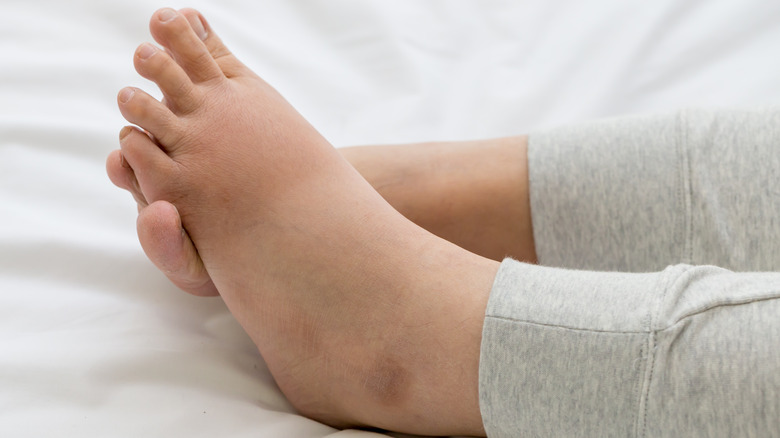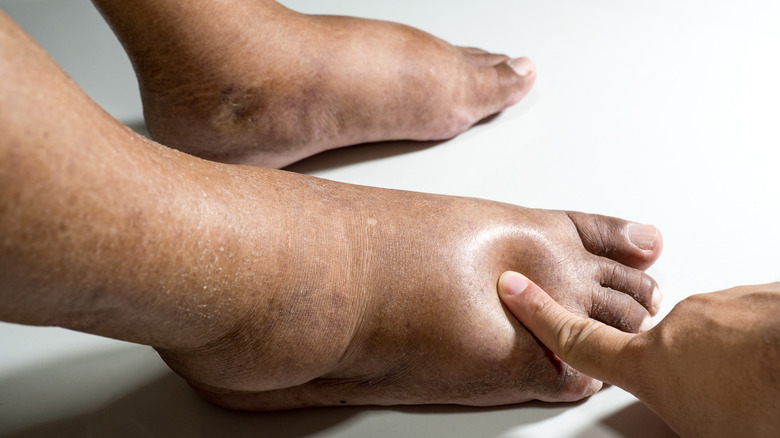What It Really Means When Your Feet Swell
Many people know that pregnant women often experience swollen feet. This is because the weight of the fetus puts pressure on the legs and feet, which can lead to the buildup of fluids (per Sanford Health). Pregnant women are not the only ones who experience swollen feet, though. In fact, vascular specialist Dr. Vinod Kumar told U.S. News & World Report that nearly 10% of adults experience swelling at the end of the day.
People may see their feet swell for a number of reasons, some more concerning than others. Most often, it is simply the result of being on your feet for too long, which allows gravity to pull more blood than usual into your legs. This can often be alleviated easily by resting and propping up your legs. In other cases, feet can swell due to certain medications, especially those that are used to treat high blood pressure (per Harvard Medical School). Swollen feet may also be caused by injuries and ill-fitting shoes, according to the Cleveland Clinic.
Feet may swell due to underlying conditions
Although less common, swollen feet may be a sign of underlying conditions. For example, it may be caused by skin or toenail problems, as well as bone and tendon conditions. According to the Harvard Medical School, other possible culprits include inefficient functioning of the veins, vein inflammation (phlebitis), and blood clots in the legs (deep-vein thrombosis). While rare, deep-vein thrombosis is very concerning because it can lead to breathing problems if the blood clots break away from the legs and travel to the lungs.
In rare situations, foot swelling can be an early sign of heart failure, kidney disease, or liver disease. Blood may pool in the legs due to the heart failing to pump blood correctly, and kidney problems can make it difficult to get rid of excess fluids in the body. Liver disease can cause low levels of albumin, which may allow fluid to enter tissues, causing swelling of legs, feet, and other parts of the body.
This is when to see a doctor for swollen feet
You'll want to see a doctor if you show signs of deep-vein thrombosis. Fortunately, it is usually not that difficult to distinguish the clots from less concerning culprits. Unlike most cases of swelling, clots typically only affect one leg or foot, so the Harvard Medical School advises seeing a doctor immediately if your swelling only affects one side of your body.
"Report your symptoms to your doctor if there's so much swelling that it leaves an indentation if you press your finger into it, or if it has developed suddenly, lasts for more than a few days, affects just one foot, or is accompanied by pain or discoloration of the skin," Dr. James Ioli, chief of podiatry services at Brigham and Women's Hospital, told the Harvard Medical School.
The Cleveland Clinic also suggests calling your doctor if you experience drainage or leg ulcerations. Otherwise, just lie back and elevate your legs, and the swelling should fade within hours. You may also want to try compression socks, drinking water, and enjoying food rich in magnesium.



